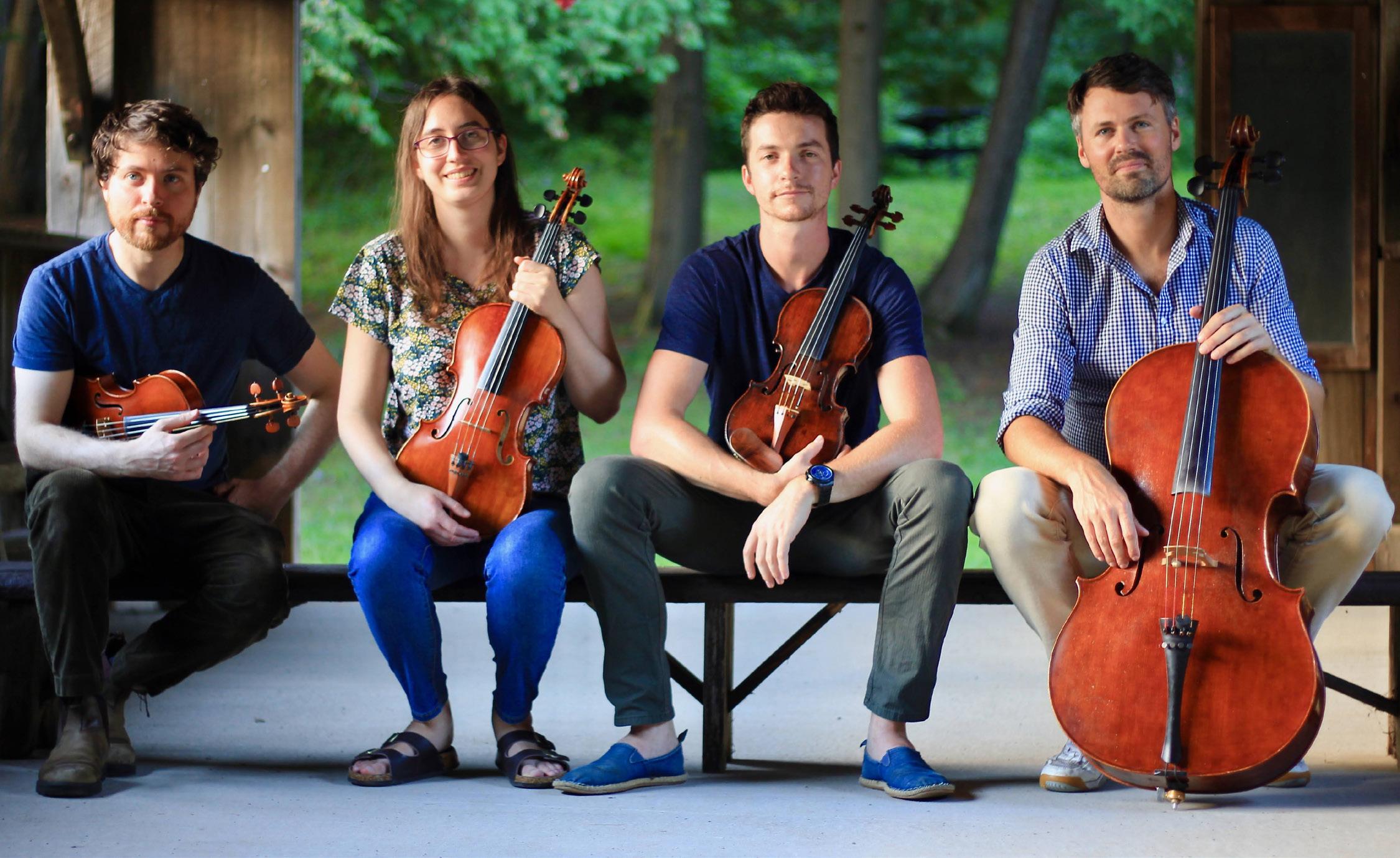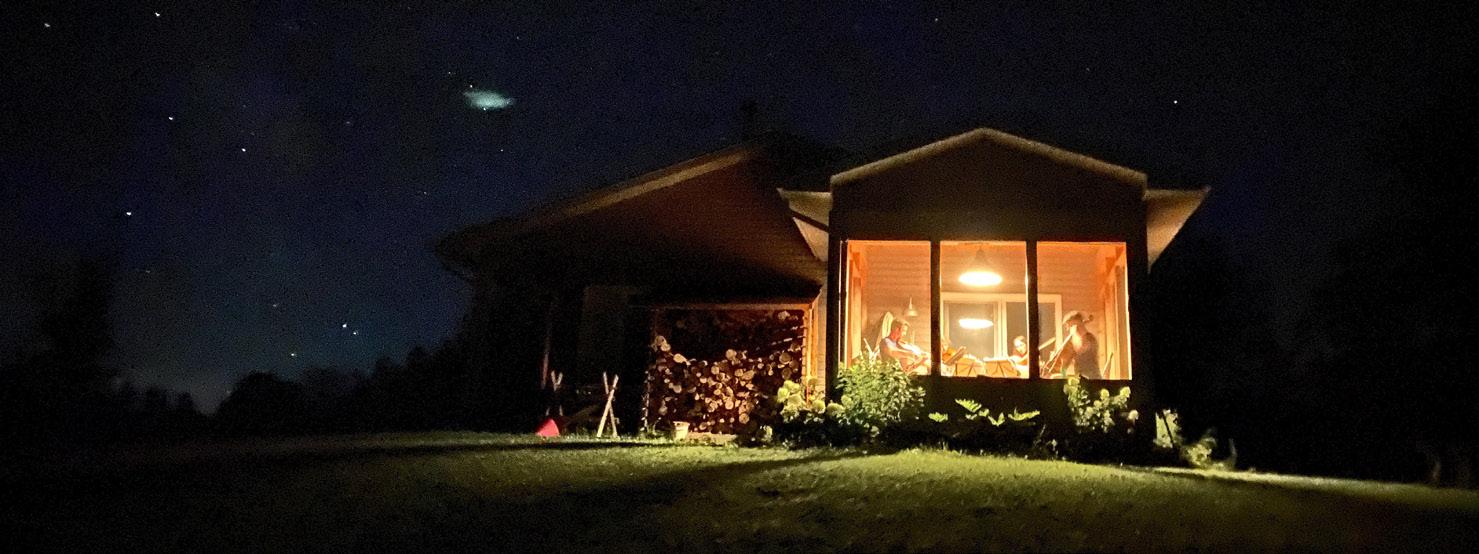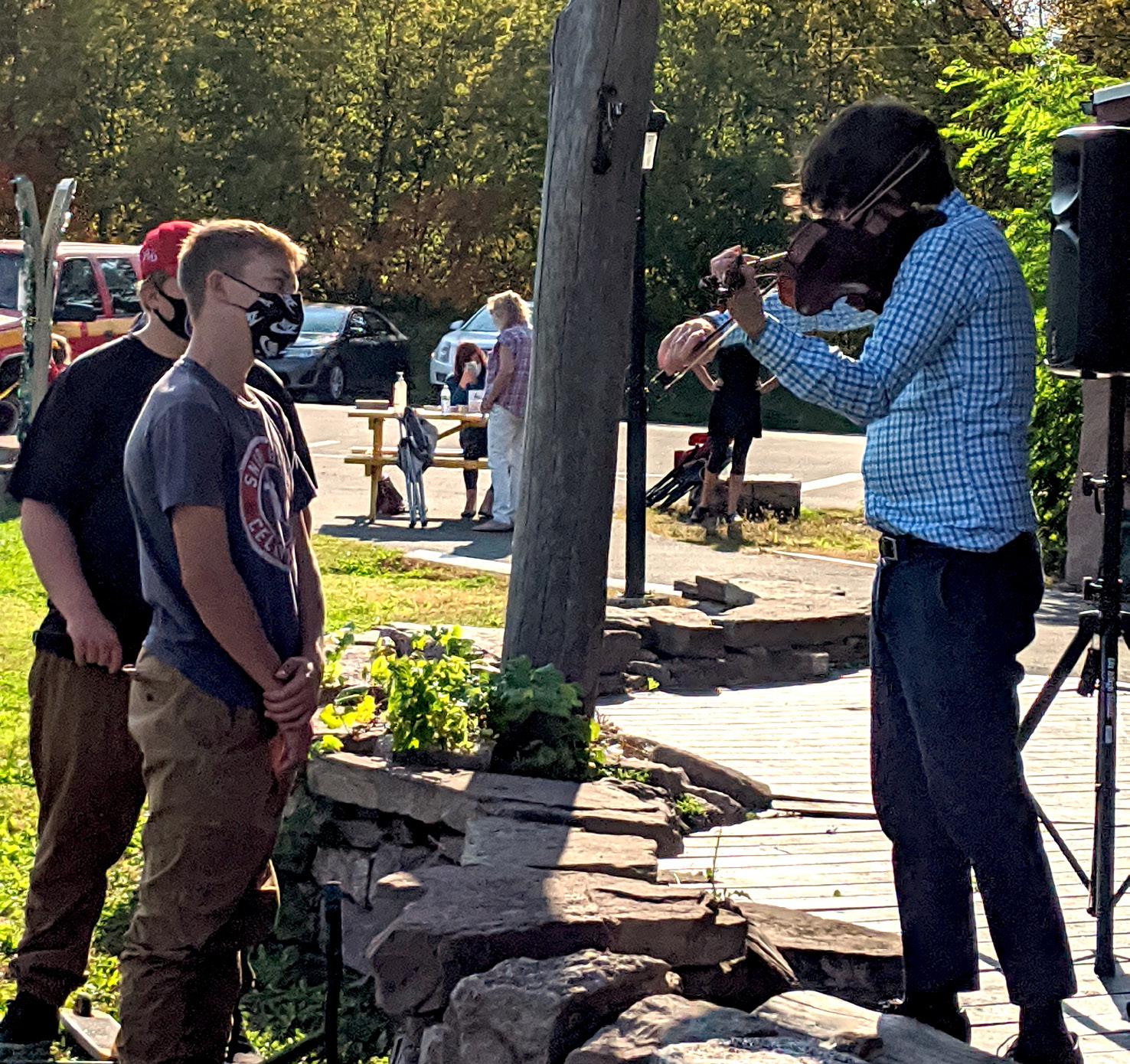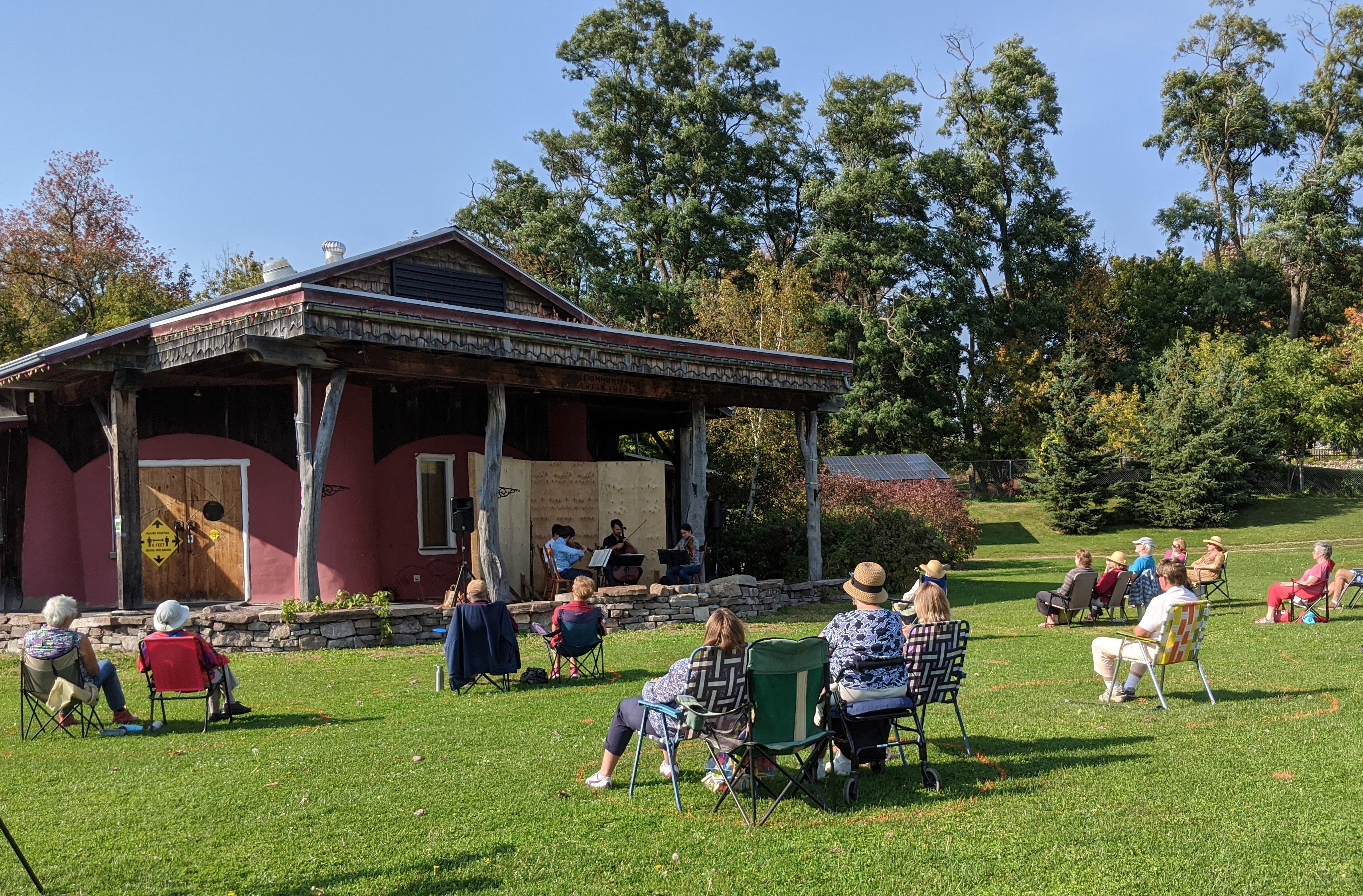
2 minute read
Connecting rural residents to classical music
(Pictured The Madoc Quartet)
By Vic Schukov
The Quinte Society for Chamber Music (QSCM) makes classical music performances by accomplished artists accessible to rural communities. The registered Canadian not-forprofit charity was founded in 1985 by Bonnie Sallans, Chair, and three choir members at St. Paul's United Church in Stirling, Ont.
“Many people in rural Ontario have never heard a professional performance of classical music,” says Sallans. “I grew up in Prince Edward and Hastings Counties. Although my professional journey is not small, my heart belongs to rural life.” The QSCM books world class professional musicians into intimate community events where locals can meet the musicians. When you speak to a musician and hear of their hard work in that life chosen, says Salans, it builds a grassroots following: “When the talking is done, and the musicians step up, hearing the music come to life is what matters, for people who have never or rarely had that experience.”
“Given the rural population, we cover a wide territory to grow a substantial audience in these regions,”says Sallans. “Many people cannot go out of their way to hear their first symphony orchestra. But when it happens in your local venue, perhaps one where you volunteered, you just might come out.”

According to Sallans, fundraising in rural communities is a challenge, as local businesses are stretched in committing to local charity groups. Thanks to private individuals and local businesses, the QSCM perseveres with volunteers who sometimes even house visiting performers.
A 2018 grant from the Ontario Arts Council allowed QSCM to stage a piano and cello concert at St. Paul’s. Last year, municipal grants from the township and Centre Hastings provided for two more. The Society plans to expand into Marmora, Tweed and further north.
“Classical musicians are expensive, dedicated professionals,” says Sallans. “Their fees are largely our cost. Canada is churning out world class musicians. We need to hear their incredible gifts, a part of our cultural legacy. Rural people are entitled to enjoy it all.”

COVID-19 has disrupted QSCM’s calendar because it takes years in advance to book high-calibre musicians: “Funding does not like uncertainty. Thankfully, our local donors have been generous. When someone falls down in rural areas, those still standing help them get back up.”
During the pandemic, QSCM expanded online programming with two virtual performance events on their website; a third is in the making. They also launched a kids’ zone created by their youngest volunteers. The QSCM hopes to return to outside performances, within allowable numbers, by September.

“Art is about reaching out from the self to the self in everyone, to find the best in ourselves. People turn to the arts, especially the classical, in times of trouble and uncertainty,” says Sallans. Artists are, by nature, finely tuned human beings. Humanity must be about how we connect with each other in a way that makes us better as individuals, a culture, a world. We go forward in a way that is caring and giving – very important in these times.”










